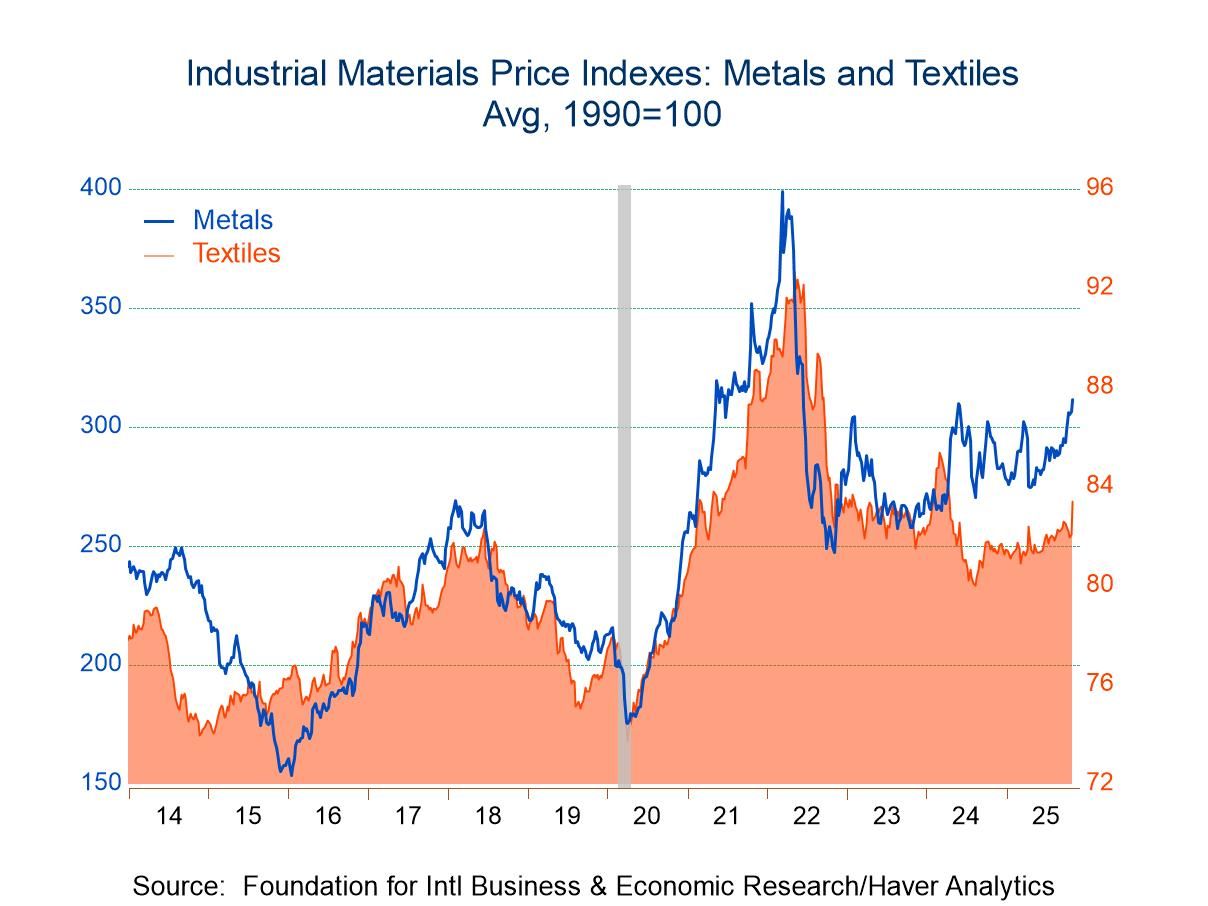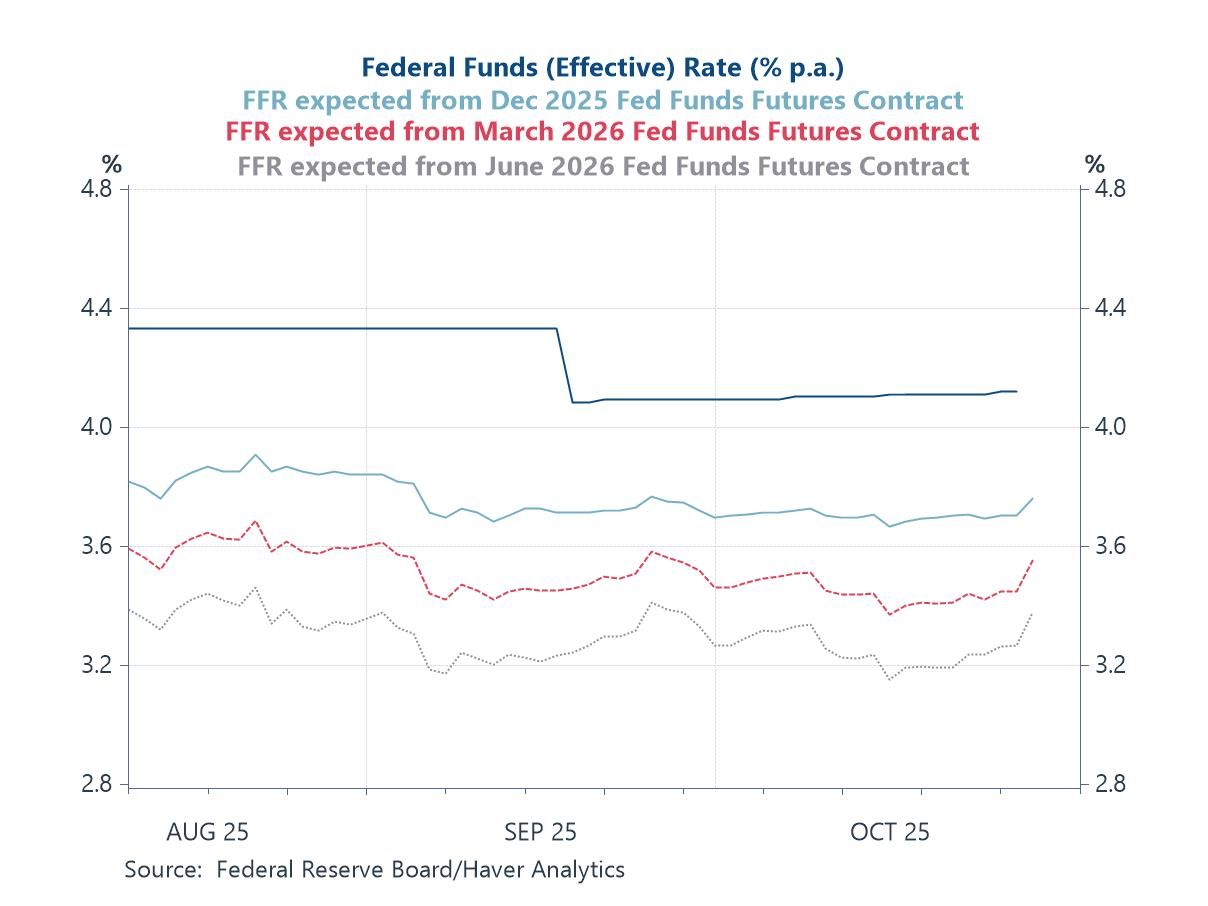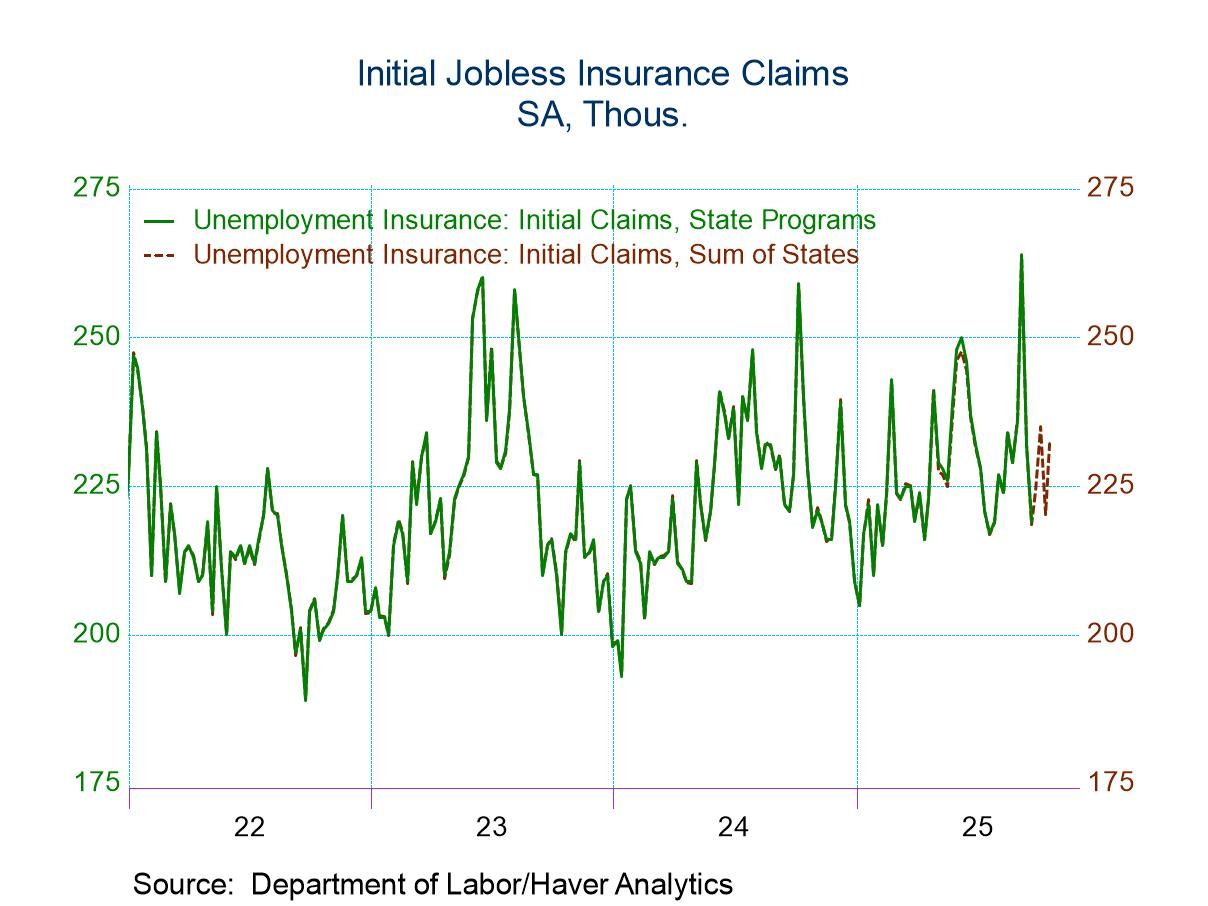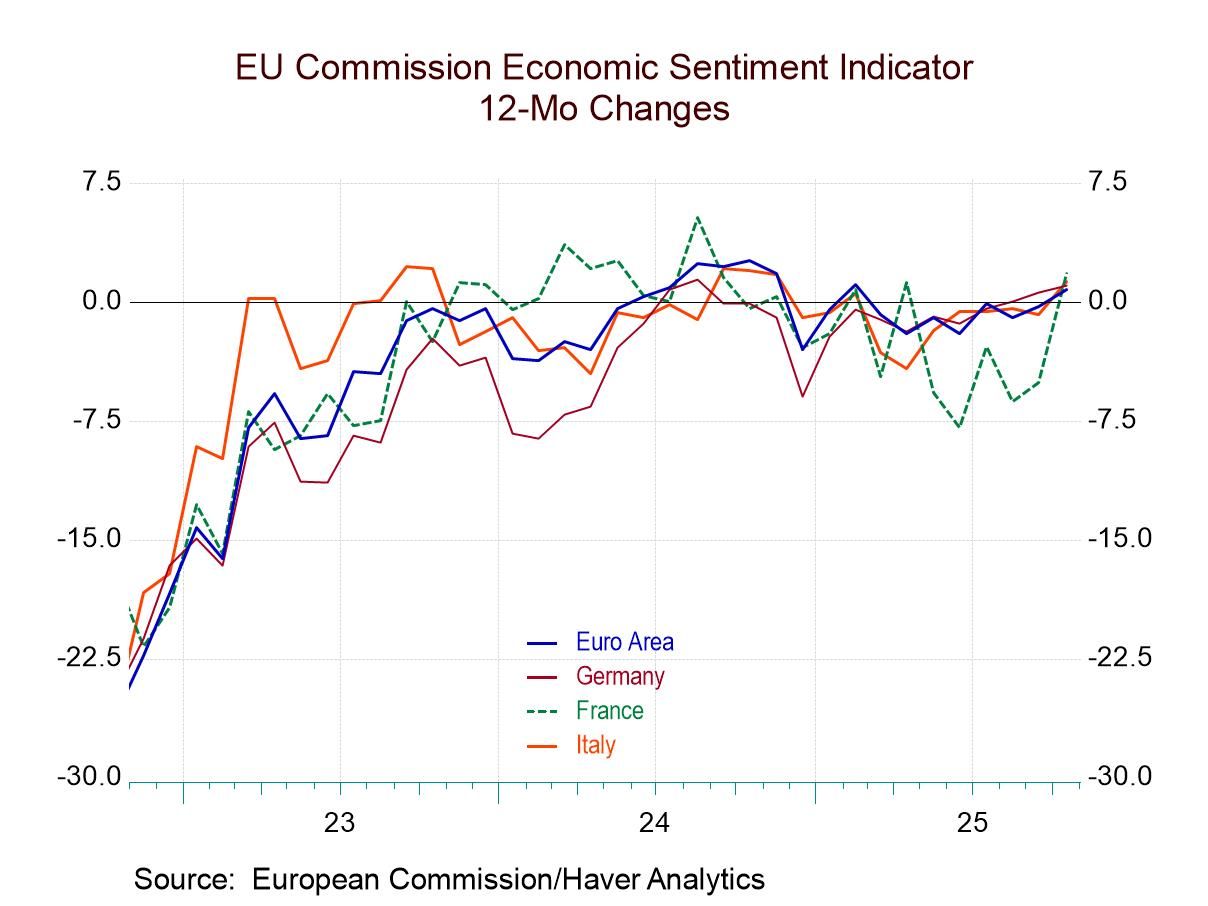 Global| Jun 07 2006
Global| Jun 07 2006Austria's Wholesale Prices: Some Evidence of Mounting Inflation Pressure, but Clothing and Capital Goods Are [...]
Summary
Inflation is becoming a hot topic once again. For instance, Austria's wholesale prices for May, which were released today, jumped 3.4% year-on-year, their largest increase since March 2005. Fuel has the main upward thrust, but other [...]
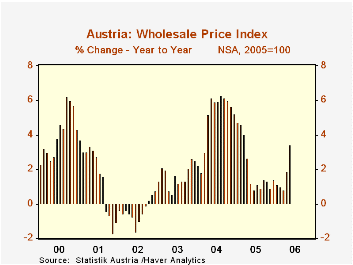
Inflation is becoming a hot topic once again. For instance, Austria's wholesale prices for May, which were released today, jumped 3.4% year-on-year, their largest increase since March 2005. Fuel has the main upward thrust, but other items are seeing bigger price advances as well.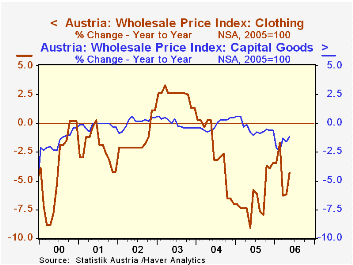
In the table below, we see prices of food, consumer goods and "intermediary" goods rising more rapidly. Some individual items include pharmaceuticals, household appliances, nonferrous metals and iron and steel. This last had been falling steeply for just over a year, but suddenly in May, it has a year-to-year increase; at 0.9%, the rise is not large, but marks a turn from a declining trend. World commodities prices in addition to oil have been booming, and those advances look to be working their way into costs of products in even such a medium-size economy as Austria.
A couple of exceptions stand out, however. Clothing prices continue deep in negative territory. This appears to be something of an exception as well, compared with other countries. Clothing prices have been declining at retail in most countries, but their producer prices have been increasing. Austria's products, though, seem to be getting cheaper. Capital goods prices have also been weakening, sustaining a trend in Austria that appears to have ended in most other countries, apart from computers and telecommunications equipment. It will be interesting to see in coming months if the Austrians can keep their finished equipment prices down in the face of the price increases in metals and other components.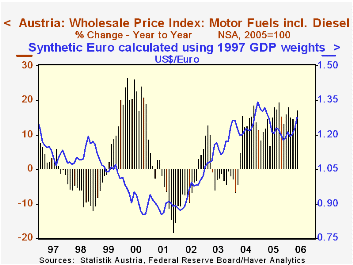
Finally, petroleum products are becoming more expensive in Austria, just as everywhere else. At the same time, this force may be muted somewhat by the recent strengthening of the euro. In the third graph, we see that in 2000 the weakening euro was associated with very large increases in fuel prices in Austria. The subsequent strengthening of the currency accompanied relative weakening of energy prices. A rough negative relationship is evident, although the numerical correlation is low (around 18%). So we could then watch for relatively more moderate increases in energy costs, which of course, are priced in dollars in world markets.
| Austria: Wholesale Price Indexes, Yr/Yr % Changes | May 2006 | Apr 2005 | Mar 2005 | December/December|||
|---|---|---|---|---|---|---|
| 2005 | 2004 | 2003 | ||||
| Total WPI | 3.4 | 1.9 | 0.8 | 1.4 | 5.2 | 2.5 |
| Consumer Goods | 1.5 | 1.7 | 0.2 | 3.9 | 0.2 | 2.3 |
| Intermediary Goods | 7.0 | 3.6 | 1.9 | -0.4 | 12.6 | 3.9 |
| Capital Goods | -1.1 | -2.6 | -1.3 | -0.6 | 0.5 | -0.4 |
| "Other" Food* | 1.1 | 0.8 | 0.3 | 0.3 | 1.1 | 0.6 |
| Clothing | -4.3 | -6.2 | -6.3 | -3.4 | -7.0 | 1.4 |
| Motor Fuel | 17.3 | 12.9 | 14.6 | 16.0 | 11.5 | -1.9 |
| Machine Tools | 0.7 | 0.1 | 0.8 | 1.4 | 1.4 | 0.5 |
Carol Stone, CBE
AuthorMore in Author Profile »Carol Stone, CBE came to Haver Analytics in 2003 following more than 35 years as a financial market economist at major Wall Street financial institutions, most especially Merrill Lynch and Nomura Securities. She had broad experience in analysis and forecasting of flow-of-funds accounts, the federal budget and Federal Reserve operations. At Nomura Securities, among other duties, she developed various indicator forecasting tools and edited a daily global publication produced in London and New York for readers in Tokyo. At Haver Analytics, Carol was a member of the Research Department, aiding database managers with research and documentation efforts, as well as posting commentary on select economic reports. In addition, she conducted Ways-of-the-World, a blog on economic issues for an Episcopal-Church-affiliated website, The Geranium Farm. During her career, Carol served as an officer of the Money Marketeers and the Downtown Economists Club. She had a PhD from NYU's Stern School of Business. She lived in Brooklyn, New York, and had a weekend home on Long Island.


